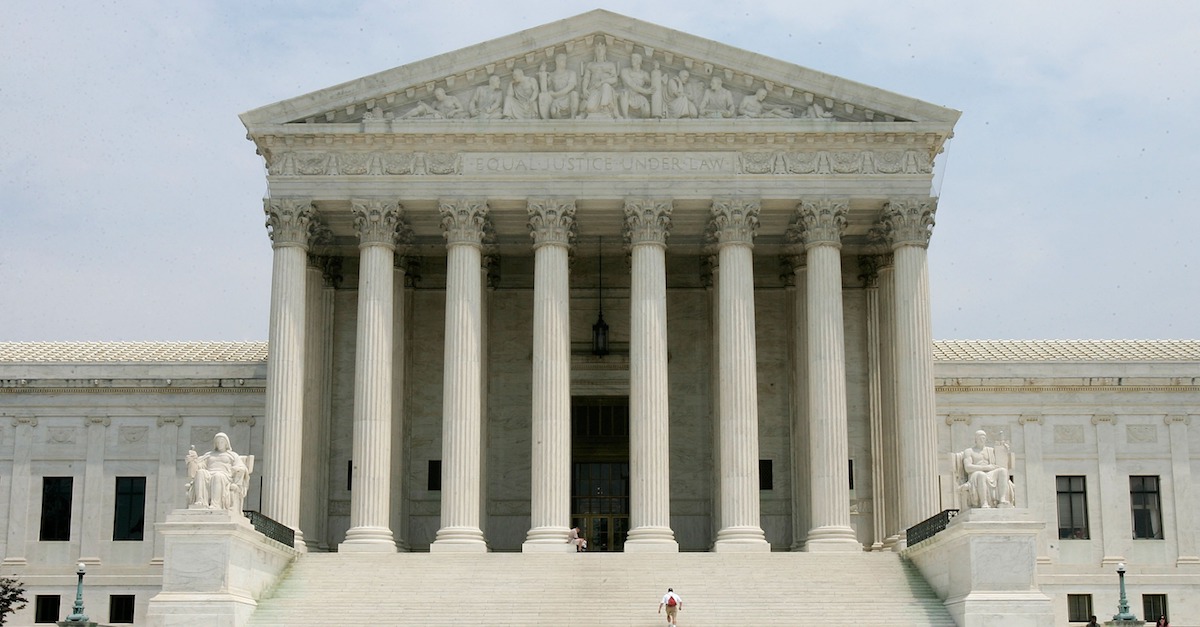
The Supreme Court on Friday handed down their decision in the case of Carpenter v. United States, an much-anticipated ruling on whether law enforcement officials need a warrant to get location information from cell phone tower sites. In a narrow, qualified opinion by Chief Justice John Roberts, the Court ruled that officers do indeed need to get a warrant before getting such information about a person, reversing a lower court’s decision.
Timothy Carpenter had been convicted in a robbery case and sentenced to more than 100 years in prison after prosecutors used cell-site data to prove their case. Authorities didn’t use a warrant to get the information from the service provider, rather the prosecutors used a court order under the Stored Communications Act. Warrants require probable cause that a crime was committed and that the information sought is connected to it. The Stored Communications Act only needs the applicant to show “reasonable grounds” for the belief that the information is “relevant and material to an ongoing investigation,” which is a lower standard. Since they didn’t get a warrant, which requires the higher standard, Carpenter argued that his conviction should be overturned.
Chief Justice Roberts agreed and sent the case back down to a lower court, noting that a warrant is needed in a case like this because cell phone location information is a very specific type of data that comes at an intersection of past Court decisions.
On the one hand, he noted, the Court ruled in the past that people have a general expectation of privacy when it comes to their physical movements, as is the case when it comes to GPS tracking. On the other hand, this information can be considered business records, and the information is voluntarily shared by individuals with a third party (their service provider). Records of dialed telephone numbers, for instance, do not carry an expectation of privacy.
Roberts ultimately decided that the third-party doctrine does not apply here, as the Carpenter case deals with an “exhaustive chronicle of location information, that shows where a person has been in the past, that is given to providers simply by powering on a phone.
Roberts was very clear in this case that he is not trying to make a broad rule, noting the special characteristics of this type of information.
“Our decision today is a narrow one. We do not express a view on matters not before us,” Roberts wrote. ” We do not … call into question conventional surveillance techniques and tools, such as security cameras. Nor do we address other business records that might incidentally
reveal location information. Further, our opinion does not consider other collection techniques involving foreign affairs or national security.”
Roberts cited Jusitce Felix Frankfurter, who once noted with regards to how the court addresses new technology, “the Court must tread carefully in such cases, to ensure that we do not ’embarrass the future.'”
Justice Anthony Kennedy took issue with Roberts’ reasoning in his dissent, stating that the third-party doctrine should apply here, and that the Court has made it clear in past decisions that individuals do not have privacy interests in a third party’s business records, “even when
the records contain personal and sensitive information.” In his dissent, which was joined by Justices Clarence Thomas and Samuel Alito, Kennedy said that the Court’s decision on Friday places risky restrictions on law enforcement officials trying to investigate violent crimes.
In a dissent of his own, Justice Alito wrote that the decision “will do far more harm than good.”
In a separate dissent, Justice Thomas noted that the Fourth Amendment issue should be decided by who actually owns the information, which in this case is the provider, not the individual. Addressing the third-party doctrine, Justice Neil Gorsuch wrote in yet another dissent that he’s not a fan of it in general, saying the Court “has never offered a persuasive justification” for its existence at all.
Note: This article has been updated with details of the dissents in this case.
[Image via Alex Wong/Getty Images]
Have a tip we should know? [email protected]